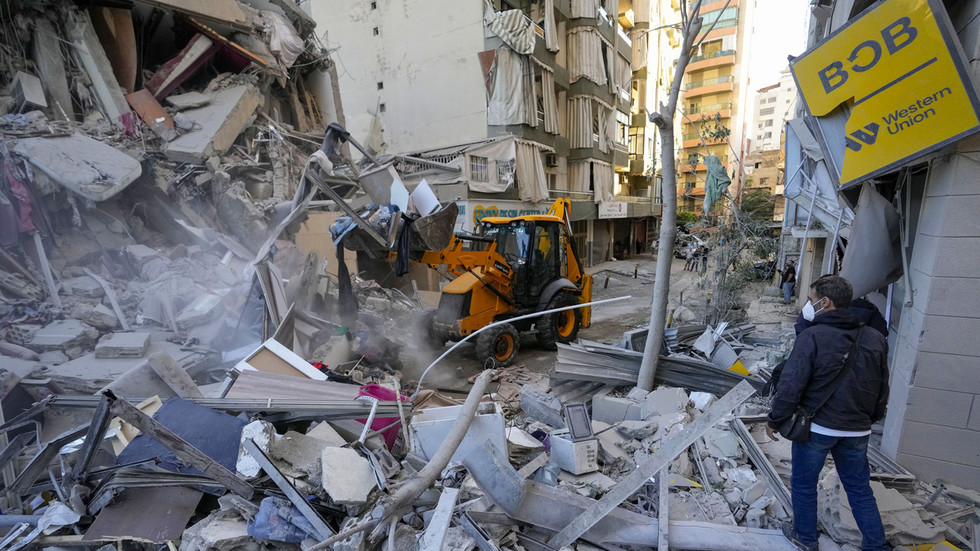Headlines
Israel Claims Discovery of Hezbollah Gold Reserves

Israeli authorities have announced the discovery of gold reserves allegedly linked to Hezbollah, intensifying tensions between Israel and the Lebanese militant group.
According to IDF spokesperson Daniel Hagari, Israel has identified a bunker beneath a significant hospital in the Lebanese capital that purportedly holds hundreds of millions of dollars in gold and cash belonging to Hezbollah.
This statement was made as Israel commenced a series of airstrikes on Beirut, specifically targeting the Al-Qard Al-Hassan Association—a financial system it alleges is operated by Hezbollah in Lebanon.
“The Israeli Air Force conducted a series of targeted strikes on Hezbollah’s financial strongholds,” Hagari stated on Monday, noting that the assaults are intended to undermine the group’s capacity to fund attacks against Israelis.
According to his statement, the IDF has hit an underground vault located beneath a residential building that contained millions in cash and gold. However, another significant target remains—a bunker reportedly associated with former Hezbollah leader Hassan Nasrallah, who was killed by the IDF in late September—the spokesman noted.
Read more: CNN reports on leaked US intelligence files revealing Israeli military plans.
Hagari stated that the vault is supposedly situated “directly under El Sahel Hospital in the heart of Beirut in Dakhia,” and claimed there are currently “hundreds of millions of dollars in cash and gold inside the bunker.”
READ ALSO: Netanyahu Alleges Hezbollah’s Attempted Assassination Against Him
The UN human rights office for the region criticized Israel’s recent airstrikes on Beirut and southern Lebanon, which targeted “facilities linked to the Al-Qard Al-Hassan financial association.” These strikes resulted in “widespread destruction of residential properties and civilian infrastructure,” along with causing “immense panic and a new wave of displacement among residents in those areas,” according to a statement issued by the UN Human Rights Office in the Middle East and North Africa on Monday.
According to international humanitarian law, the UN body stated that “objects contributing economically or financially to a party’s war effort” cannot be deemed legitimate targets and attacked solely for this reason.
Since October of last year, Hezbollah and Israel have frequently exchanged fire after the Lebanese group declared its support for the Palestinians following the outbreak of war in Gaza. In late September, West Jerusalem announced an escalation by entering a “new phase” of the conflict and intensified operations against Hezbollah, aiming to secure northern Israel from attacks by the militant organization.
The IDF initiated an aerial bombing campaign and a “limited” ground incursion into its northern neighbor after a sequence of handheld electronic explosions resulted in dozens dead and thousands injured across Lebanon. Though Israel has not officially confirmed or denied any involvement, the operation is widely assumed to have been orchestrated by Israeli intelligence.
The Lebanese Health Ministry reports that Israeli attacks on Lebanon have resulted in the deaths of nearly 2,500 people as of Saturday.
